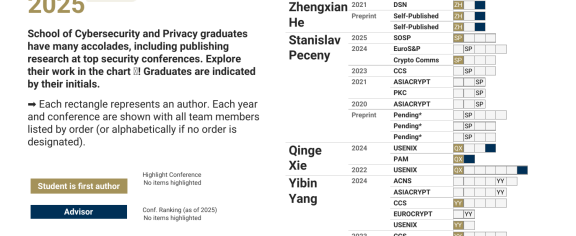2025-10-13
“This course truly underscores Georgia Tech’s commitment to pioneering meaningful undergraduate experiences,” says teacher Vinayak (Vinny) Agarwal. “No other peer institution I know of is exposing undergraduates to bioinformatics at this level.”
2025-09-19
Wang has been awarded a NASA Space Technology Graduate Research Opportunity to develop mathematically grounded solutions for landing spacecraft.
2025-08-19
Agriculture is the largest cause of deforestation. So, it follows that forest expansion efforts would displace agriculture — but new research from Georgia Tech's School of Economics reports that that’s not necessarily the case.
2025-08-21
A new study explains how tiny water bugs use fan-like propellers to zip across streams at speeds up to 120 body lengths per second
2025-08-01
The new center will promote research and collaboration focused on using state-of-the-art artificial intelligence and machine learning techniques to address complex scientific challenges.
2025-08-06
Record-breaking numbers from the Office of Commercialization drive meaningful inventions, IP, and industry partnerships.
2025-07-31
Georgia Tech researchers developed new statewide canopy assessment tools to help urban planners, policymakers, and communities make data-informed decisions for climate resilience.
2025-07-28
Engineered stone has been in use for homes since the 1970s but creates serious health hazards for workers who produce them.
2025-05-14
Five Ph.D. students from Georgia Tech’s School of Cybersecurity and Privacy graduated in Spring 2025, contributing significant research in software security, cryptography, and privacy with 34 published papers.
2025-07-24
Experts say that more accurate depictions of sharks can help protect them and highlight their role in global ecosystems.








